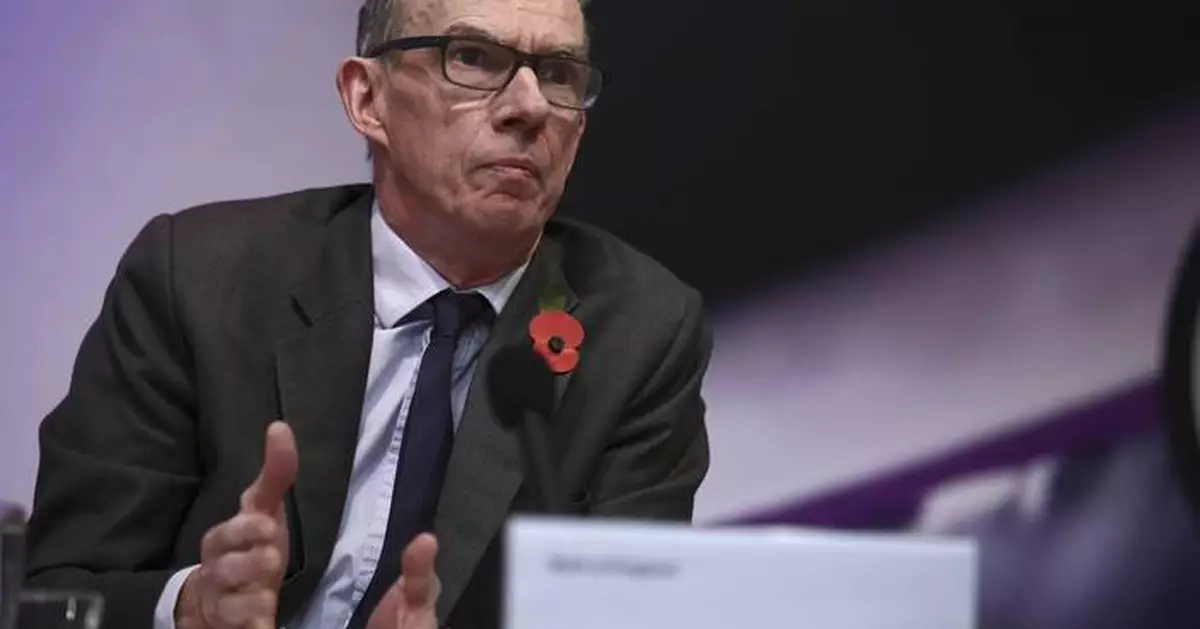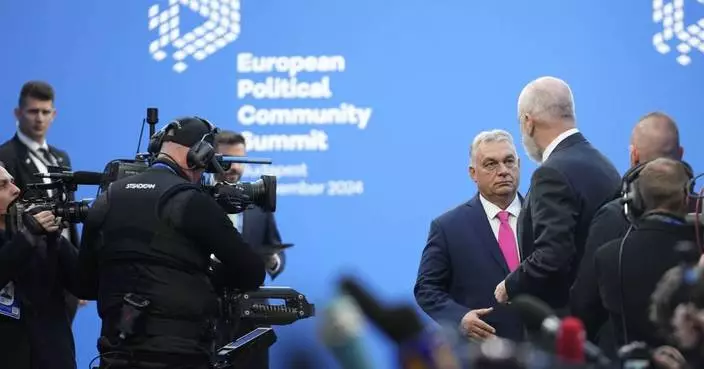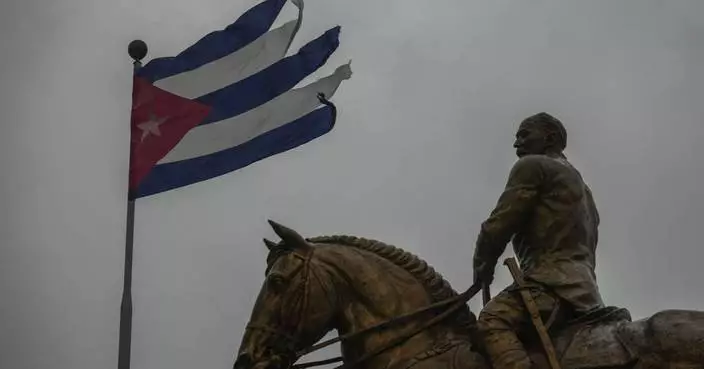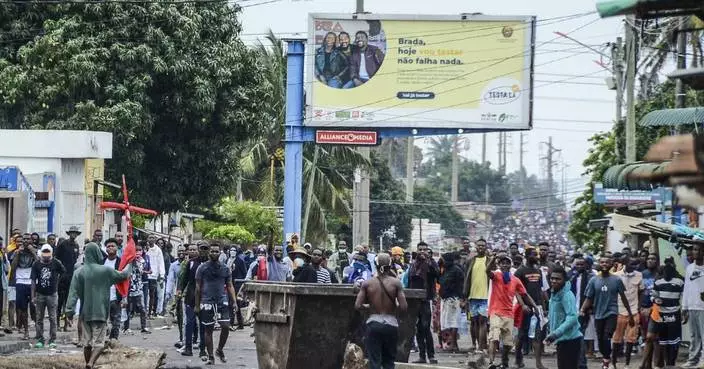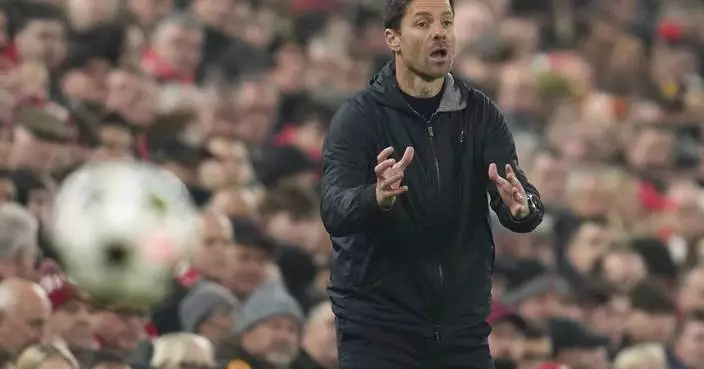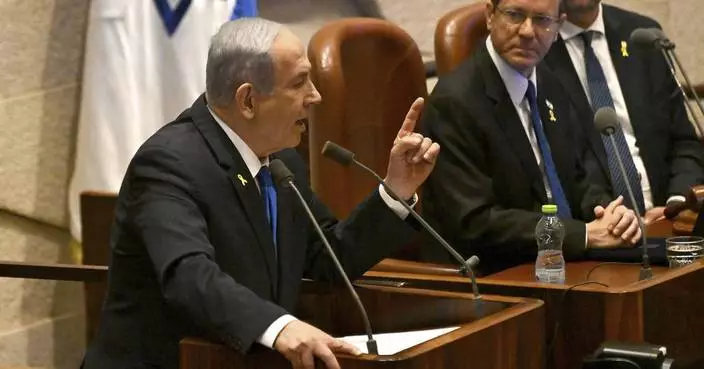LONDON (AP) — The Bank of England cut its main interest rate by a quarter of a percentage point to 4.75% on Thursday after inflation across the U.K. fell significantly, relieving some pressure on borrowers who have faced elevated mortgage and loan costs.
The bank said eight of the nine members of its rate-setting panel backed the reduction — the second in three months — while one opted to keep borrowing costs on hold. The latest cut comes after inflation in the U.K. fell to an annual rate of 1.7%, its lowest level since April 2021.
Click to Gallery
Bank of England Governor Andrew Bailey speaks during the central bank's Monetary Policy Report press conference at the Bank of England, in London, Thursday, Nov. 7, 2024. (Henry Nicholls/Pool Photo via AP)
Bank of England Deputy Governor for Monetary Policy Clare Lombardelli gestures, during the central bank's Monetary Policy Report press conference at the Bank of England, in London, Thursday, Nov. 7, 2024. (Henry Nicholls/Pool Photo via AP)
Bank of England Governor Andrew Bailey smiles during the central bank's Monetary Policy Report press conference at the Bank of England, in London, Thursday, Nov. 7, 2024. (Henry Nicholls/Pool Photo via AP)
Bank of England Governor Andrew Bailey attends the central bank's Monetary Policy Report press conference at the Bank of England, in London, Thursday, Nov. 7, 2024. (Henry Nicholls/Pool Photo via AP)
Bank of England Governor Andrew Bailey applauds during the central bank's Monetary Policy Report press conference at the Bank of England, in London, Thursday, Nov. 7, 2024. (Henry Nicholls/Pool Photo via AP)
Bank of England Deputy Governor, Markets and Banking, Dave Ramsden gestures during the central bank's Monetary Policy Report press conference at the Bank of England, in London, Thursday, Nov. 7, 2024. (Henry Nicholls/Pool Photo via AP)
Though inflation has fallen below the bank's target of 2%, Governor Andrew Bailey cautioned that interest rates would not be falling too fast over coming months, partly because last week's budget measures from the new Labour government would likely see prices rise by more than they would otherwise have done.
“We need to make sure inflation stays close to target, so we can’t cut interest rates too quickly or by too much,” he said. “But if the economy evolves as we expect it’s likely that interest rates will continue to fall gradually from here.”
He added that it's very unlikely that interest rates will fall to the very low levels that persisted in the wake of the global financial crisis in 2008. During the coronavirus pandemic, which erupted in early 2020, interest rates around the world fell to zero, or just above zero in the case of the Bank of England.
Central banks worldwide dramatically increased borrowing costs from near zero during the coronavirus pandemic when prices started to shoot up, first as a result of supply chain issues built up and then because of Russia’s full-scale invasion of Ukraine which pushed up energy costs.
As inflation rates have recently fallen from multi-decade highs, the central banks have started cutting interest rates. The U.S. Federal Reserve is also expected to cut interest rates later Thursday.
Economists have warned that worries about the future path of prices following last week's tax-raising budget from the new Labour government and the economic impact of U.S. President-elect Donald Trump may limit the number of cuts next year.
“Even though interest rates have further to fall, the upward pressure on inflation from the budget and growing global risks, including possible new U.S. tariffs, could mean that policy is loosened more modestly than many anticipated," said Suren Thiru, economics director at the Institute of Chartered Accountants in England and Wales.
The decision comes a week after Treasury chief Rachel Reeves announced around 70 billion pounds ($90 billion) of extra spending, funded through increased business taxes and borrowing. Economists think that the splurge, coupled with the prospect of businesses cushioning the tax hikes by raising prices, could lead to higher inflation next year.
Rate-setters considered the budget measures during their deliberations and concluded they would likely boost growth by 0.75 percentage points and inflation by 0.5 percentage points over the coming year.
The rate decision also comes a day after Trump was declared the winner of the U.S. presidential election. He has indicated that he will cut taxes and introduce tariffs on certain imported goods when he returns to the White House in January. Both policies have the potential to be inflationary both in the U.S. and globally, thereby prompting Bank of England policymakers to keep interest rates higher than initially planned.
Bailey said it was “not useful or wise to enter into speculation” about what policies might be introduced by the incoming Trump administration and that the Bank of England only factors in policies that have already been announced when it compiles its economic projections.
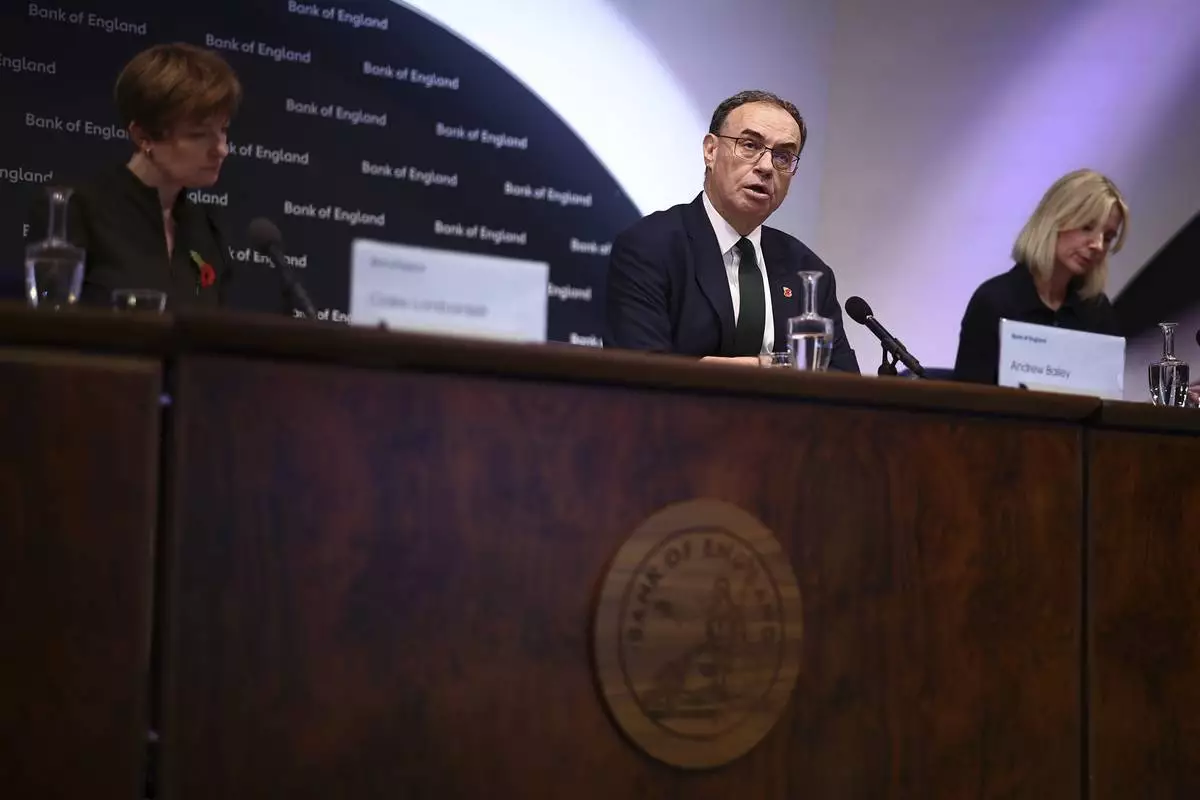
Bank of England Governor Andrew Bailey speaks during the central bank's Monetary Policy Report press conference at the Bank of England, in London, Thursday, Nov. 7, 2024. (Henry Nicholls/Pool Photo via AP)
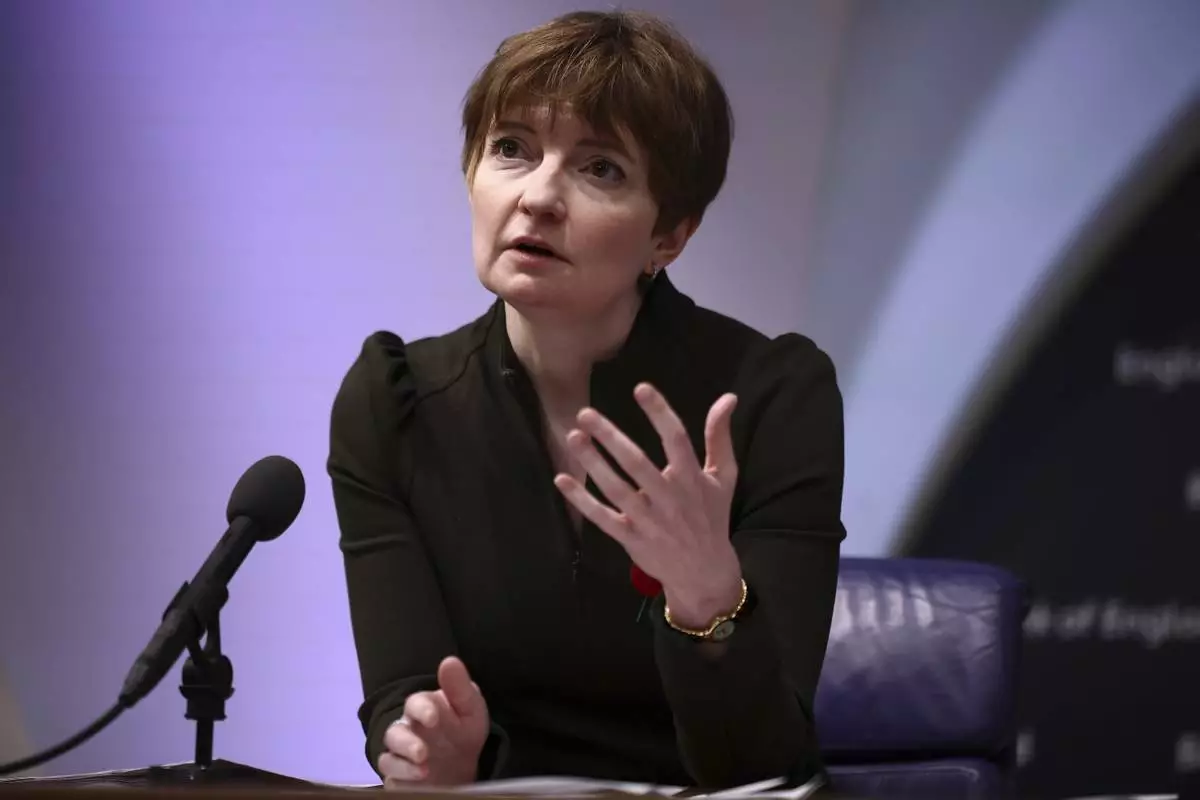
Bank of England Deputy Governor for Monetary Policy Clare Lombardelli gestures, during the central bank's Monetary Policy Report press conference at the Bank of England, in London, Thursday, Nov. 7, 2024. (Henry Nicholls/Pool Photo via AP)
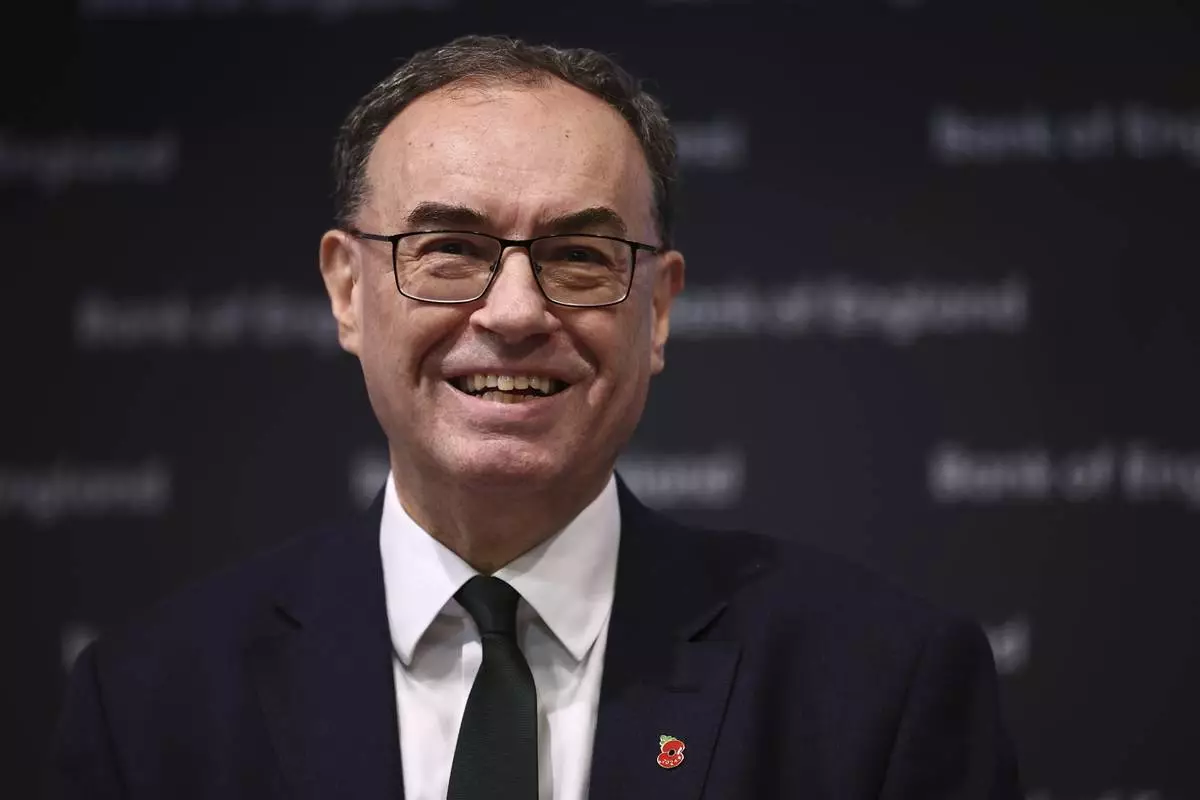
Bank of England Governor Andrew Bailey smiles during the central bank's Monetary Policy Report press conference at the Bank of England, in London, Thursday, Nov. 7, 2024. (Henry Nicholls/Pool Photo via AP)
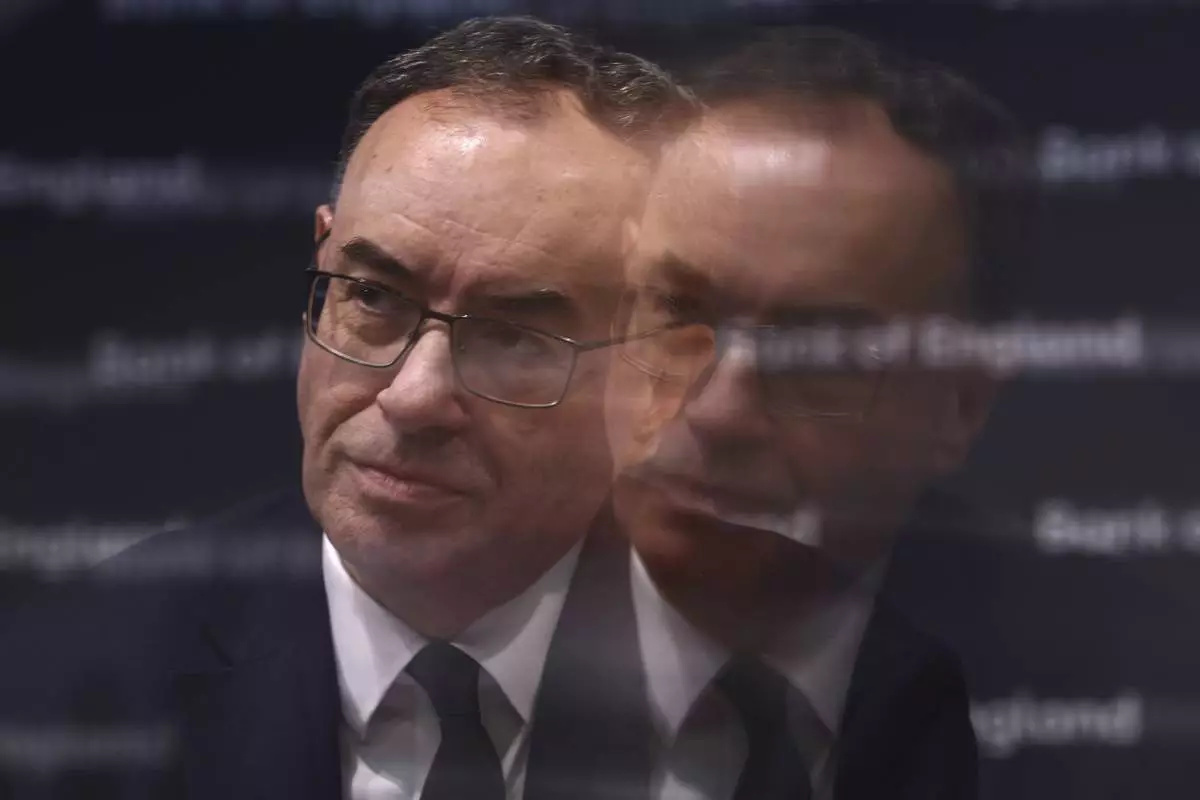
Bank of England Governor Andrew Bailey attends the central bank's Monetary Policy Report press conference at the Bank of England, in London, Thursday, Nov. 7, 2024. (Henry Nicholls/Pool Photo via AP)
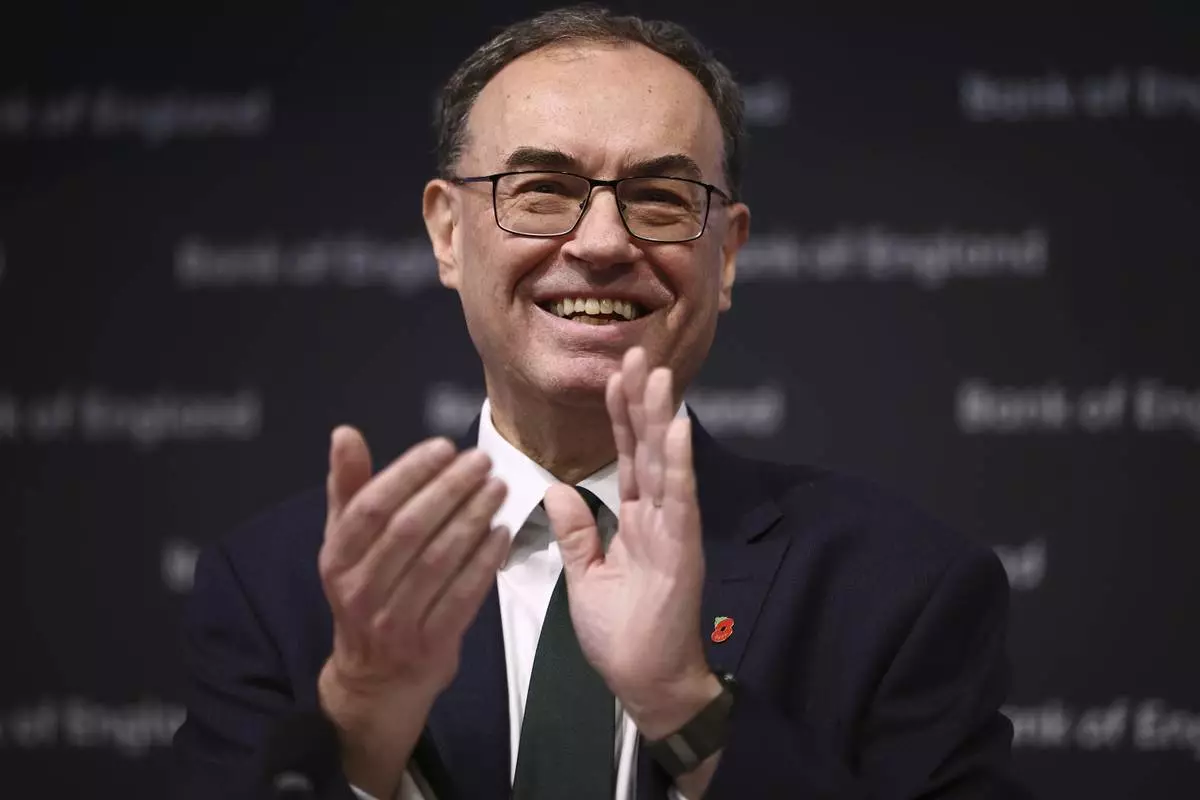
Bank of England Governor Andrew Bailey applauds during the central bank's Monetary Policy Report press conference at the Bank of England, in London, Thursday, Nov. 7, 2024. (Henry Nicholls/Pool Photo via AP)
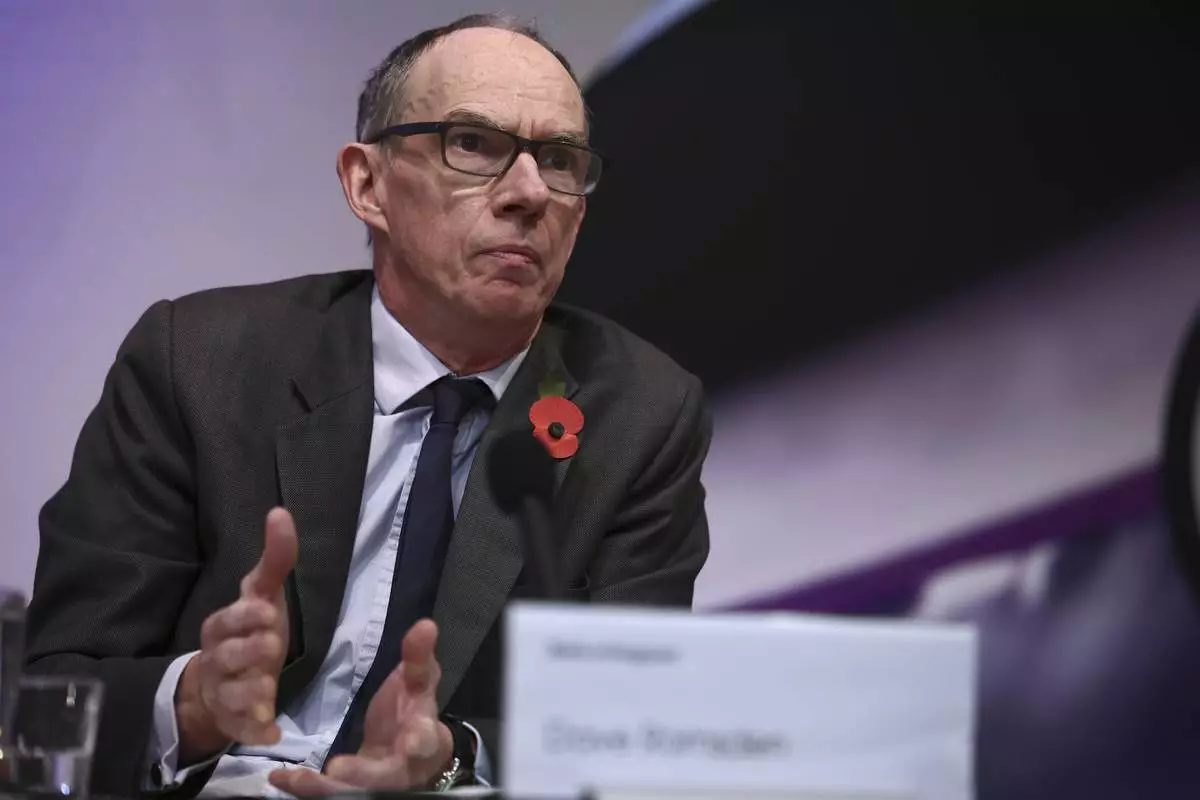
Bank of England Deputy Governor, Markets and Banking, Dave Ramsden gestures during the central bank's Monetary Policy Report press conference at the Bank of England, in London, Thursday, Nov. 7, 2024. (Henry Nicholls/Pool Photo via AP)
BERLIN (AP) — After Germany’s government coalition collapsed in a dramatic fashion when Chancellor Olaf Scholz fired Finance Minister Christian Lindner of the pro-business Free Democrats, Scholz said he would lead the country with a minority government, despite calls from opposition leaders on Thursday for early elections.
The chancellor said the minority government would be made up of his Social Democrats and the Greens until early next year — even as the leader of the biggest opposition bloc in parliament, Friedrich Merz from the center-right Christian Democrats, called for an immediate no-confidence vote and new elections.
Scholz stressed again on Thursday, that he does not want to call a vote of confidence before Jan. 15.
“The citizens will soon have the opportunity to decide anew how to proceed," the chancellor said, according to the German news agency dpa. "That is their right. I will therefore put the vote of confidence to the Bundestag at the beginning of next year.”
A meeting with Merz and Scholz at the chancellery around noontime Thursday about a possible date for the next election ended after less than an hour with Merz leaving without commenting on the talks.
Later on Thursday, President Frank-Walter Steinmeier gave fired Finance Minister Lindner and two other Free Democrats officials who had resigned — Research Minister Bettina Stark-Watzinger and Justice Minister Marco Buschmann — their certificates of dismissal.
Transport Minister Volker Wissing, who is also with the Free Democrats, said that after talks with Scholz, he had decided to stay in office and instead leave the party. Scholz asked him to add the justice ministry to his portfolio.
Steinmeier also appointed Jörg Kukies, an economic adviser to Scholz, as finance minister. Agriculture Minister Cem Özdemir from the Greens agreed to take on the research ministry.
Scholz had announced late Wednesday that he would seek a vote of confidence on Jan. 15 that he said might lead to an early election, perhaps as soon as March. The vote had otherwise been due next September.
After firing his finance minister, the chancellor had accused Lindner of breaching his trust and publicly calling for a fundamentally different economic policy, including what Scholz said would be tax cuts worth billions for a few top earners while at the same time cutting pensions for all retirees.
“That is not decent,” Scholz said.
The chancellor hopes that his minority government — Scholz’s left-leaning Social Democrats with the remaining coalition partner, the environmentalist Greens — will get the support from Merz's Christian Democrats in parliament in the coming weeks, to pass important legislation and plugging the billion-euro hole in the 2025 budget.
However, Merz on Thursday vehemently rejected Scholz's plan to wait to hold a vote of confidence until January.
“The coalition no longer has a majority in the German Bundestag, and we therefore call on the chancellor ... to call a vote of confidence immediately, or at the latest by the beginning of next week,” Merz said.
“We simply cannot afford to have a government without a majority in Germany for several months now, and then campaign for several more months, and then possibly conduct coalition negotiations for several weeks," Merz added.
Since Scholz's government doesn't have a majority in parliament any longer, he would likely lose the vote. In that scenario, Germany's president could dissolve parliament within 21 days and an early election could then be held as soon as January.
“During these 21 days, we will have enough time to find out whether there are any issues that we may have to decide on together,” Merz said, offering his party's cooperation with the minority government. "We are, of course, prepared to hold talks ... we are also prepared to take responsibility for our country.”
Achim Wambach from the Leibniz Center for European Economic Research cast doubt that a prolonged period with a minority government would help Germany's economy get back on track.
“Germany’s problems are too big to tolerate political gridlock," the analyst said.
“The government set out to reconcile the transformation towards climate neutrality with economic growth and social security,” Wambach added. “It has not lived up to this claim. The economy is stagnating and investments are failing to materialize.”
“This daunting task was compounded by geo-economic tensions: wars in Europe and the Middle East as well as economically damaging interventions through tariffs and national subsidy policies,” he added. “ The election of Donald Trump has exacerbated these problems. Europe must do more for its security and will have to reckon with increased tariffs.”
The collapse of the coalition came after weeks of disputes among the coalition partners over ways to boost the country’s ailing economy.
Lindner's pro-business Free Democrats had rejected tax increases or changes to Germany’s strict self-imposed limits on running up debt. Scholz’s Social Democrats and the Greens wanted to see major state investment and rejected the Free Democrats’ proposals to cut welfare programs.
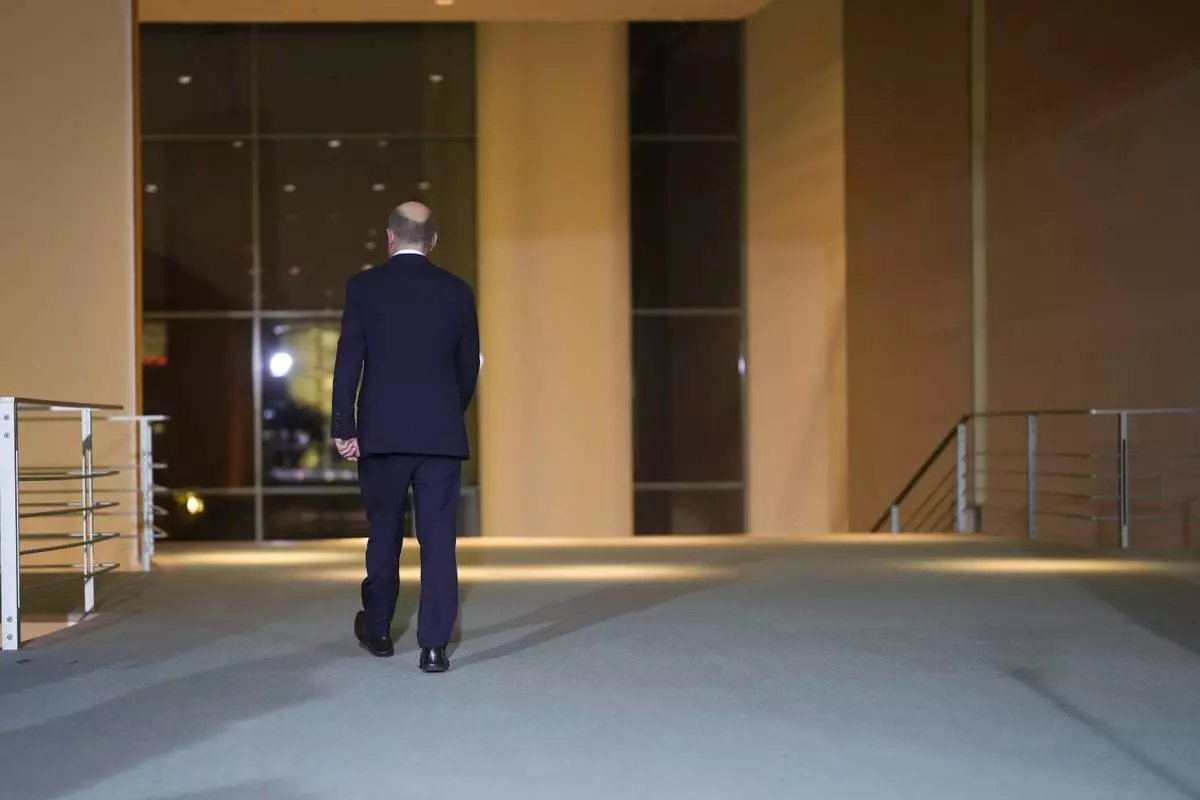
German Chancellor Olaf Scholz leaves after making a statement after a meeting with government leaders in Berlin, Germany, Wednesday, Nov. 6, 2024. (AP Photo/Markus Schreiber)
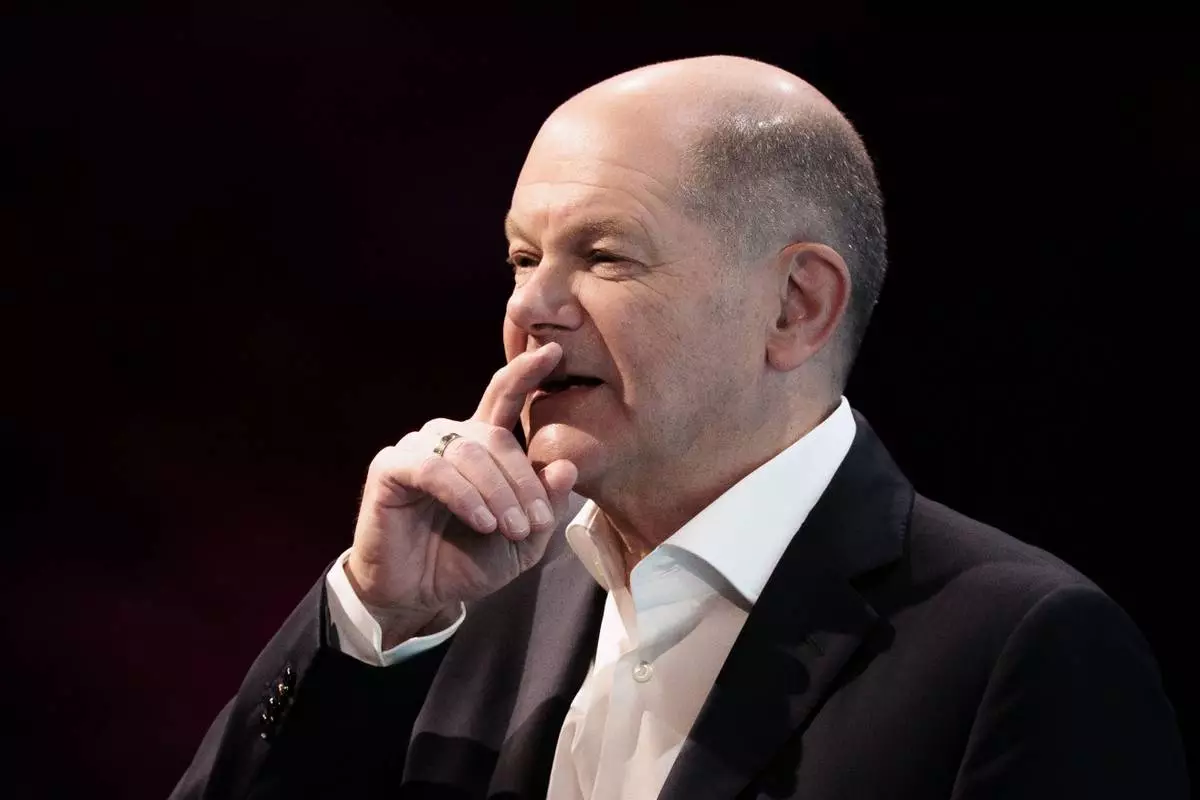
German Chancellor Olaf Scholz speaks to participants at the Deutsche Telekom AG forum, in Berlin, Thursday, Nov. 7, 2024. (Carsten Koall/dpa via AP)
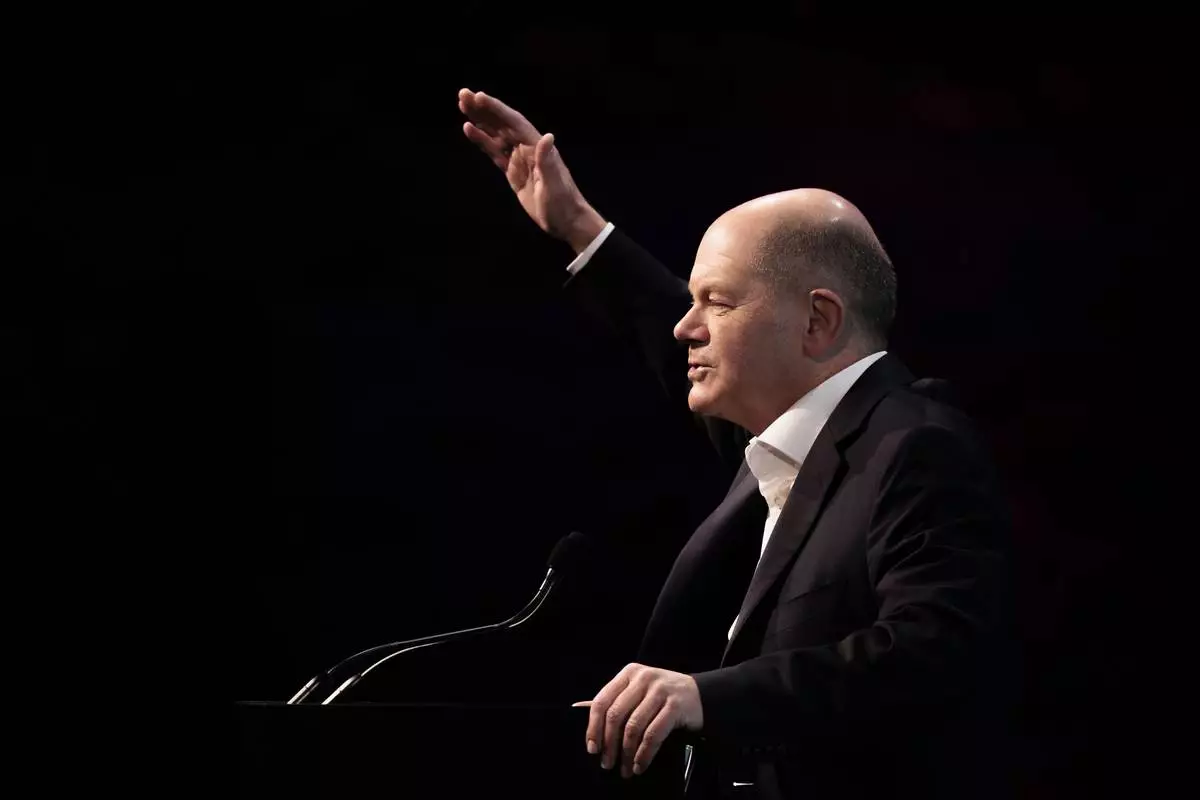
German Chancellor Olaf Scholz speaks to participants at the Deutsche Telekom AG forum, in Berlin, Thursday, Nov. 7, 2024. (Carsten Koall/dpa via AP)
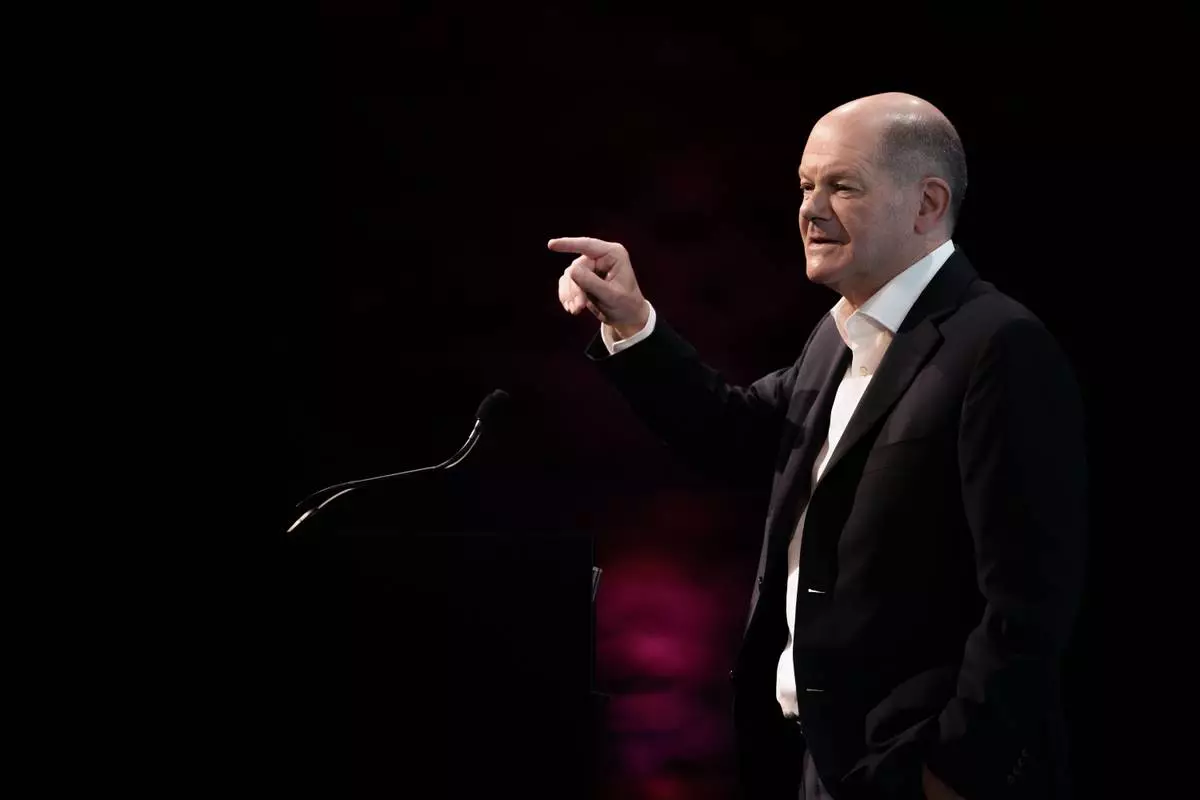
German Chancellor Olaf Scholz speaks to participants at the Deutsche Telekom AG forum, in Berlin, Thursday, Nov. 7, 2024. (Carsten Koall/dpa via AP)
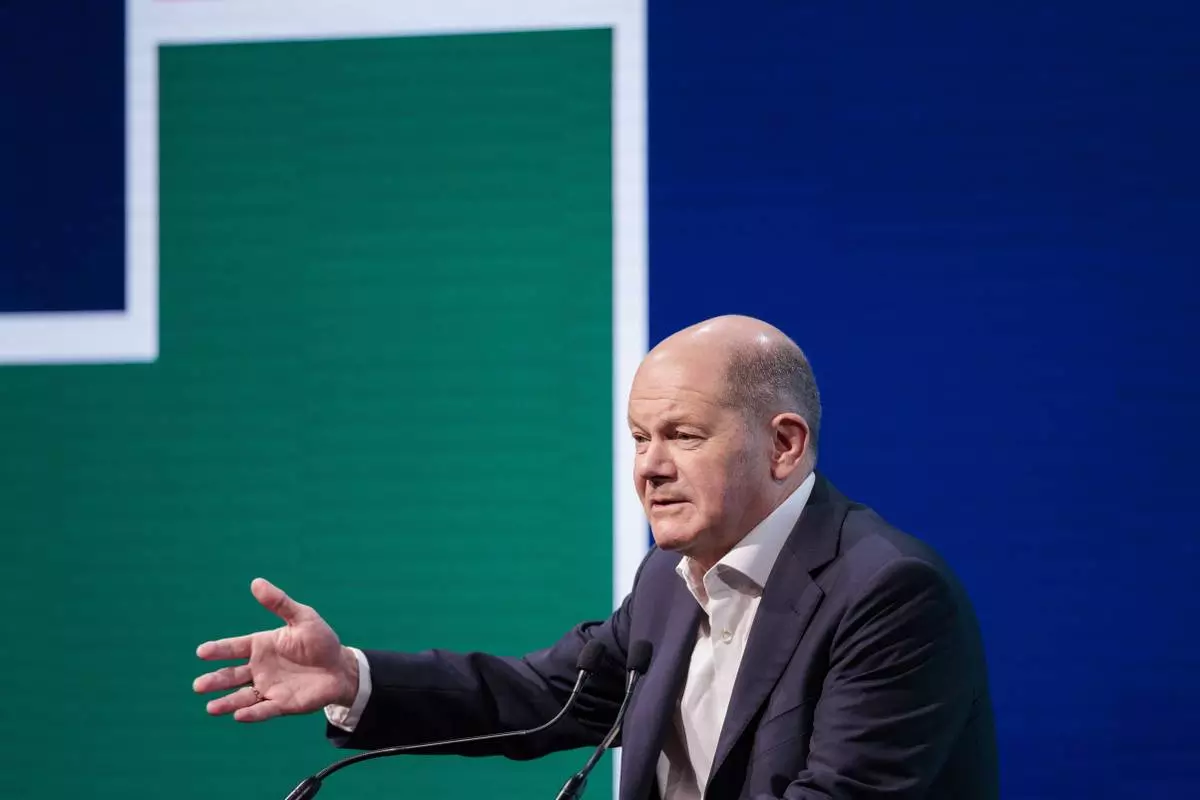
German Chancellor Olaf Scholz speaks to participants at the Deutsche Telekom AG forum, in Berlin, Thursday, Nov. 7, 2024. (Carsten Koall/dpa via AP)
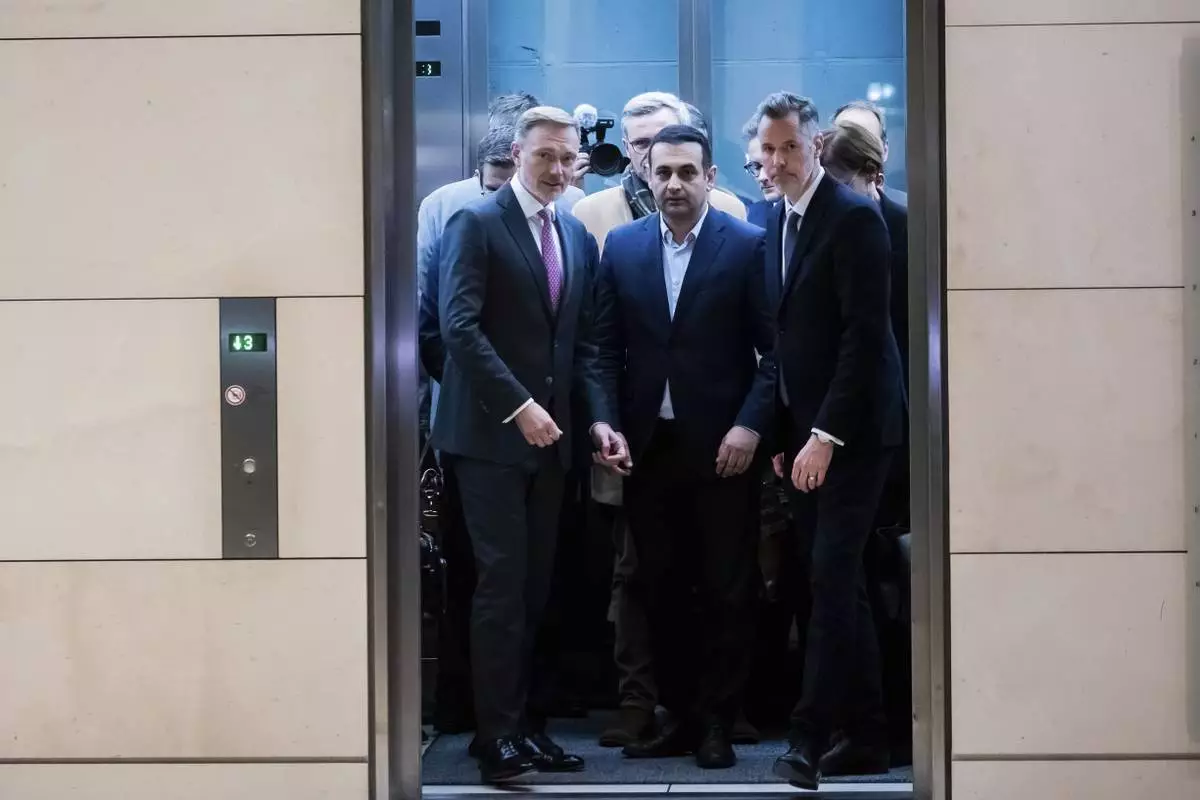
Federal Minister of Finance Christian Lindner, from left, joins Bijan Djir-Sarai, Free Democratic Party Secretary General, and Christian Dürr, Chairman of the Free Democratic Party parliamentary group, for a press statement after his dismissal by the Federal Chancellor Olaf Scholz, in Berlin, Wednesday, Nov. 6, 2024. (Christoph Soeder/dpa via AP)
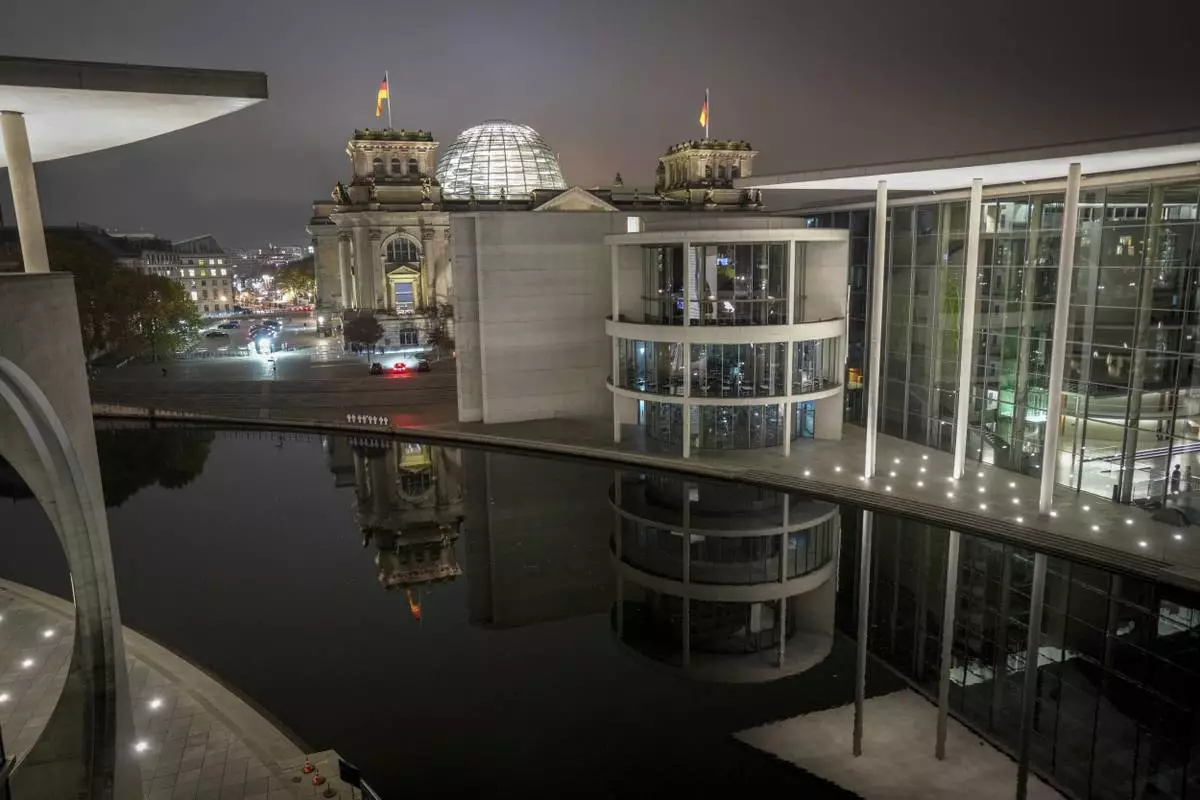
Parts of the Reichstag building with the Bundestag and the Paul Löbe House in Berlin's government district are reflected in the Spree at night, early Thursday, Nov. 7, 2024. (Kay Nietfeld/dpa via AP)
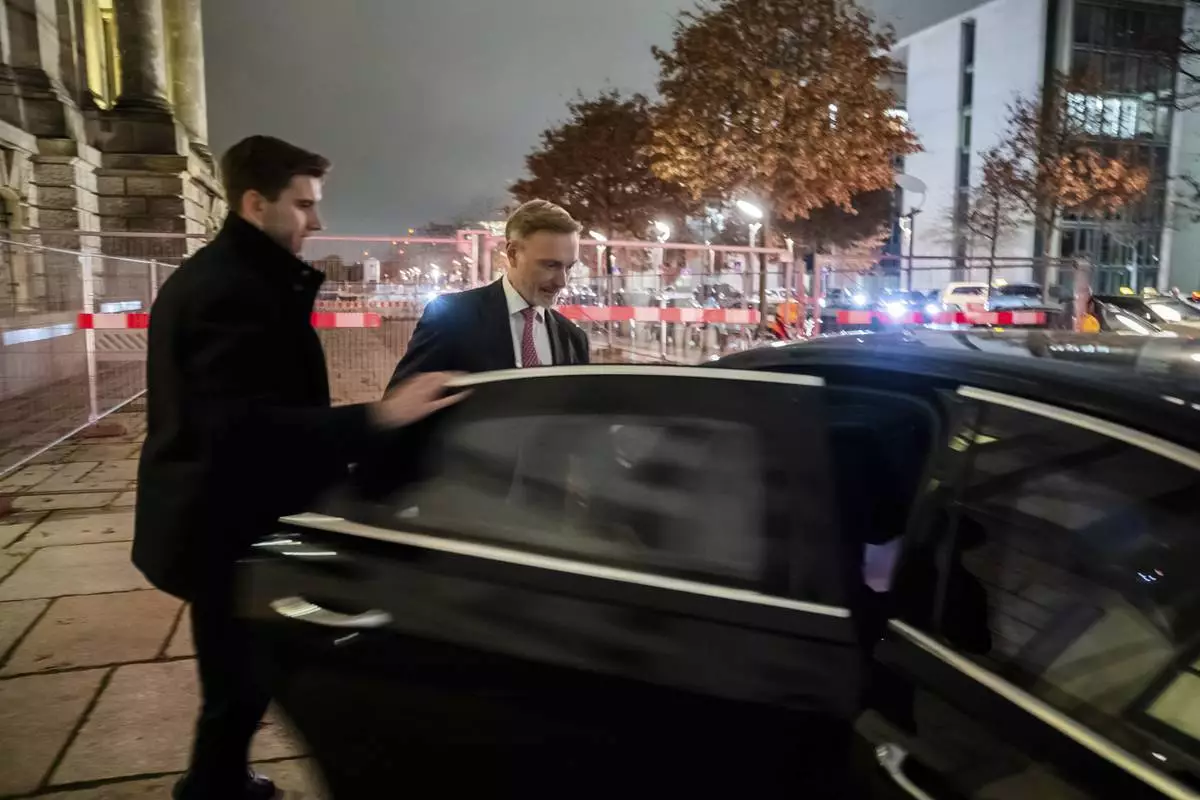
Federal Minister of Finance Christian Lindner, right, gets into his limousine in front of the Reichstag building after his dismissal by the Federal Chancellor Olaf Scholz and a parliamentary group meeting in Berlin, Wednesday, Nov. 6, 2024. (Christoph Soeder/dpa via AP)
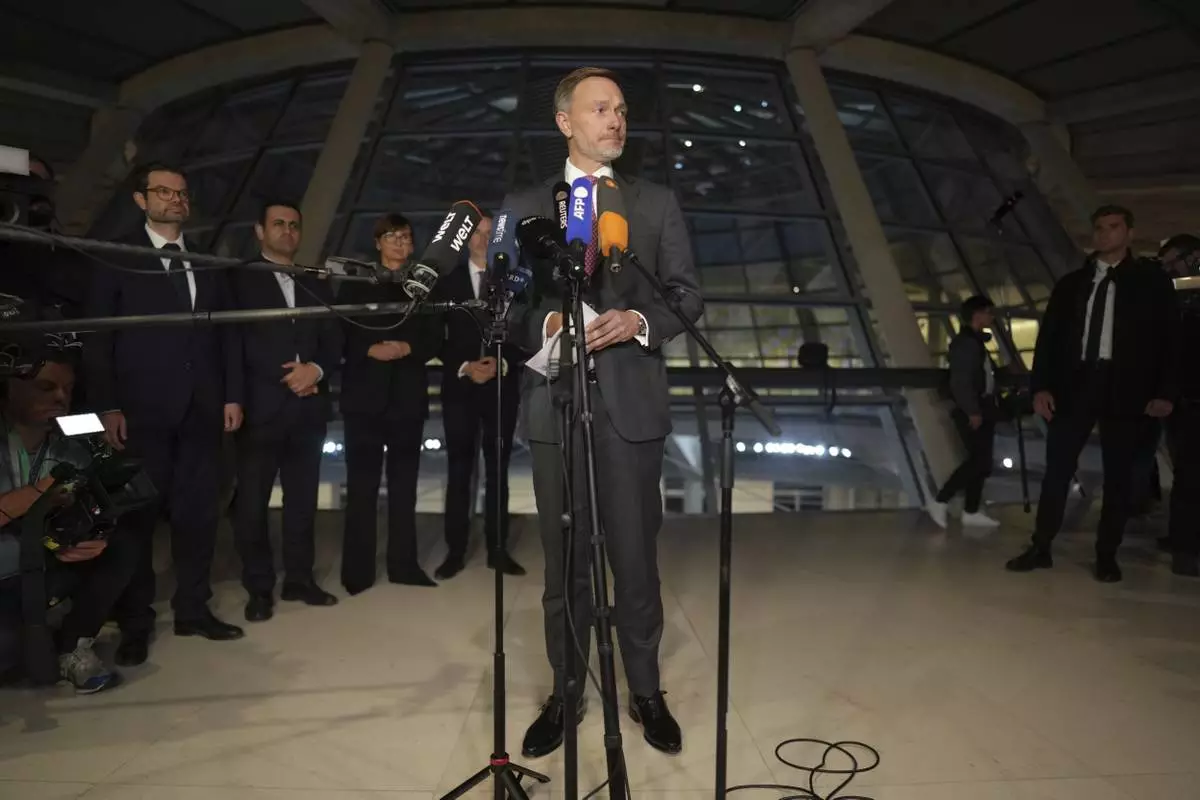
Federal Minister of Finance Christian Lindner makes a press statement following his dismissal by the Federal Chancellor in Berlin, Wednesday Nov. 6, 2024. (Kay Nietfeld/dpa via AP)
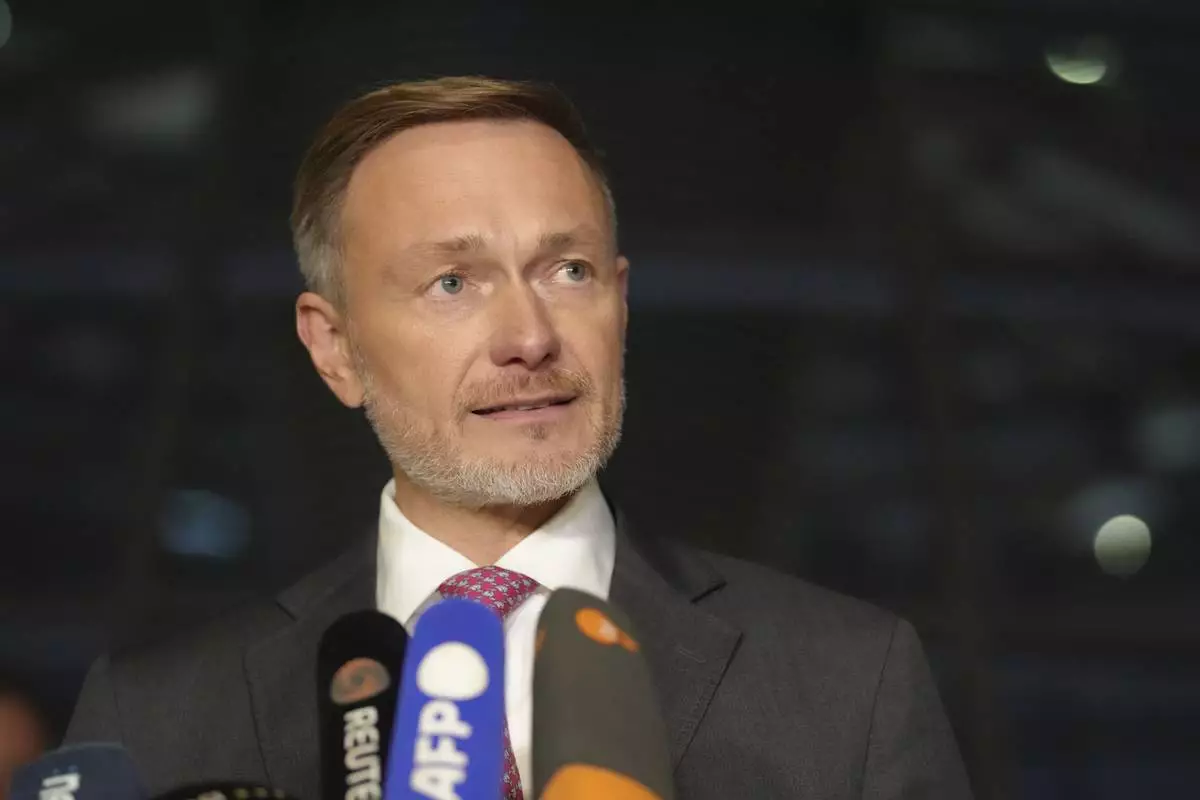
Federal Minister of Finance Christian Lindner makes a press statement following his dismissal by the Federal Chancellor in Berlin, Wednesday Nov. 6, 2024. (Kay Nietfeld/dpa via AP)
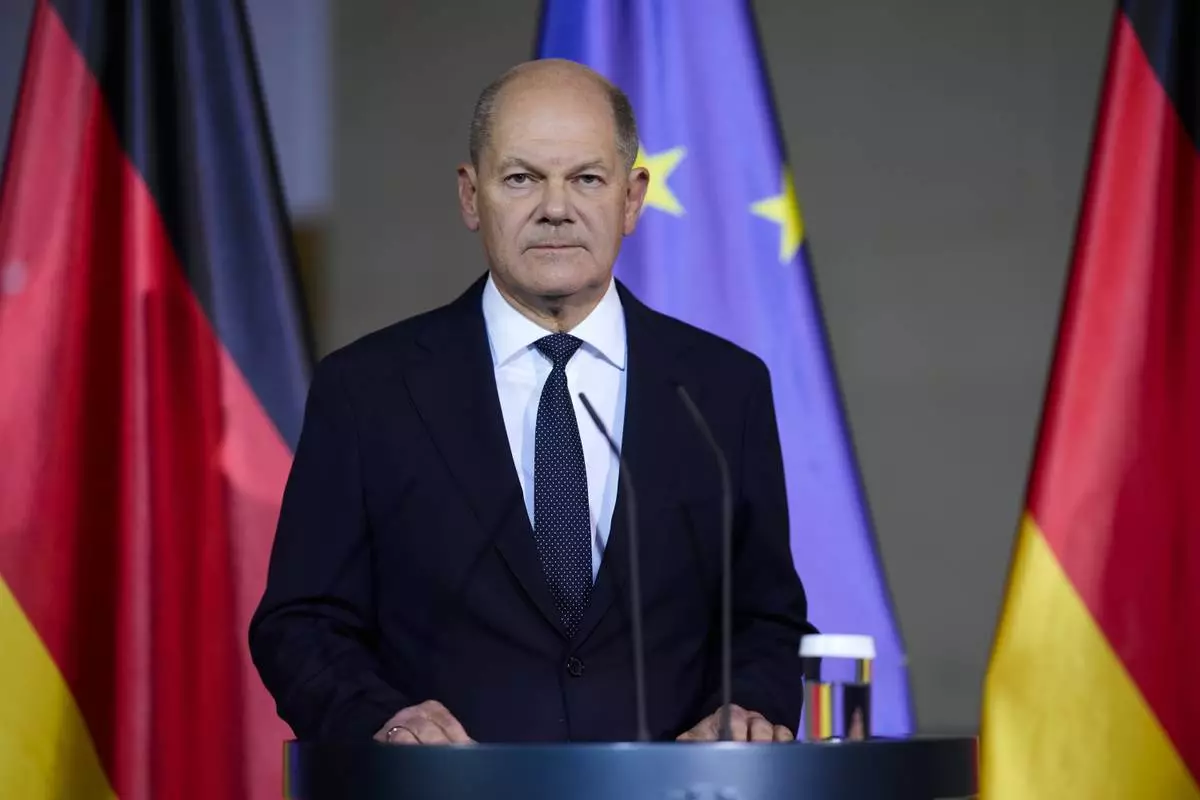
German Chancellor Olaf Scholz gives a statement after a meeting with government leaders in Berlin, Germany, Wednesday, Nov. 6, 2024. (AP Photo/Markus Schreiber)
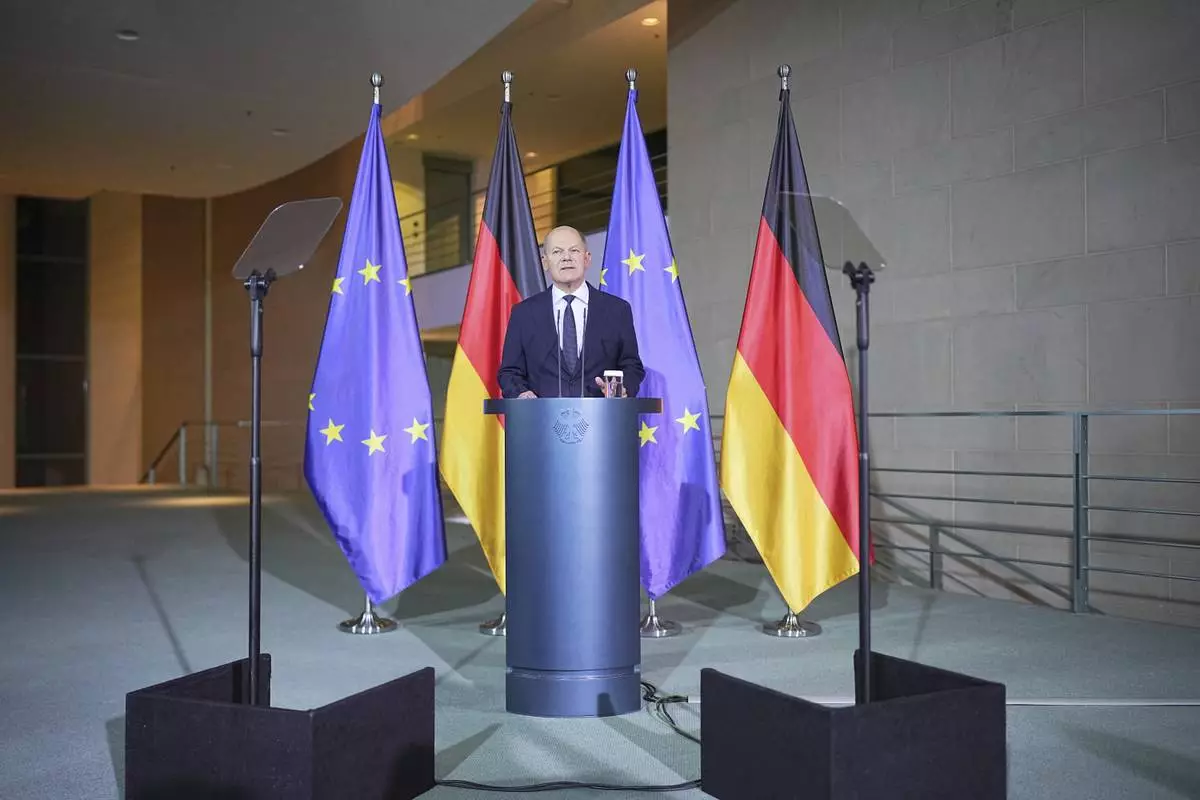
Germany's Federal Chancellor Olaf Scholz speaks in Berlin, Wednesday Nov. 6, 2024. (Michael Kappeler/dpa via AP)
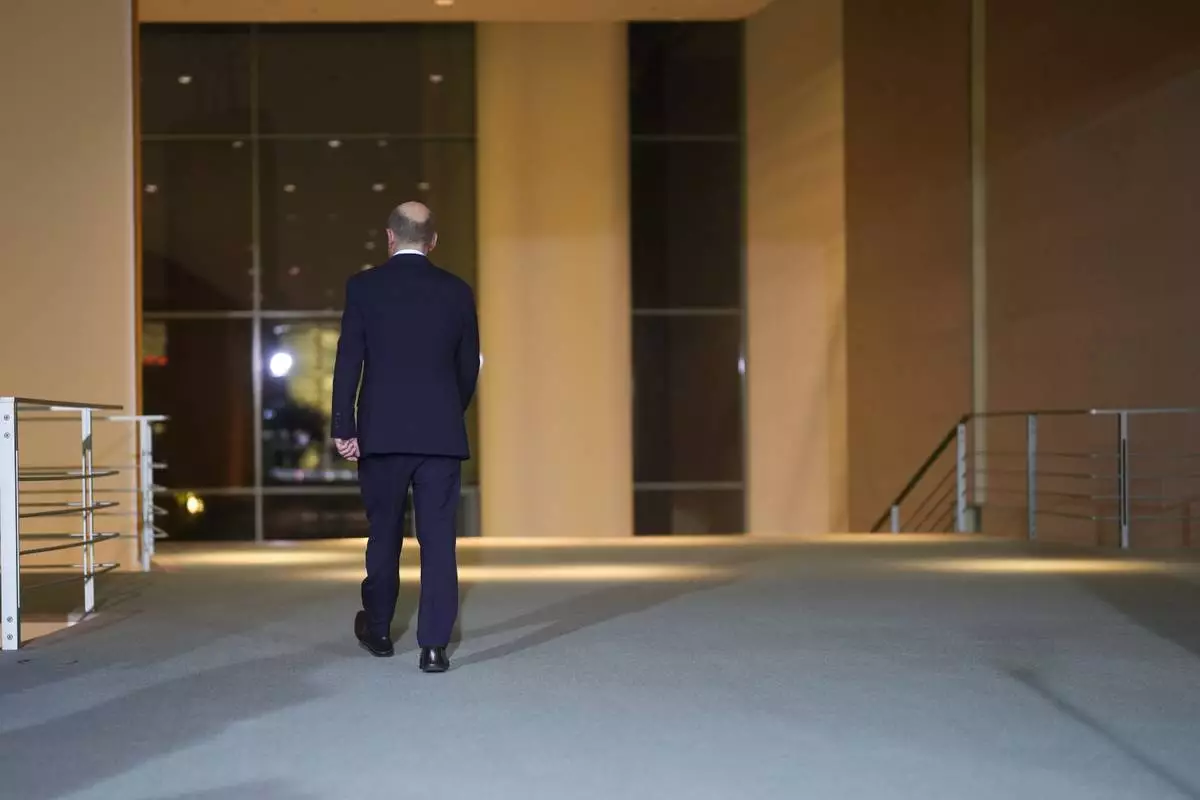
German Chancellor Olaf Scholz leaves a statement after a meeting with government leaders in Berlin, Germany, Wednesday, Nov. 6, 2024. (AP Photo/Markus Schreiber)








